
Thomas McKean was an American lawyer, politician, and Founding Father. During the American Revolution, he was a Delaware delegate to the Continental Congress in Philadelphia, where he signed the Continental Association, the Declaration of Independence, and the Articles of Confederation. McKean served as a President of Congress.
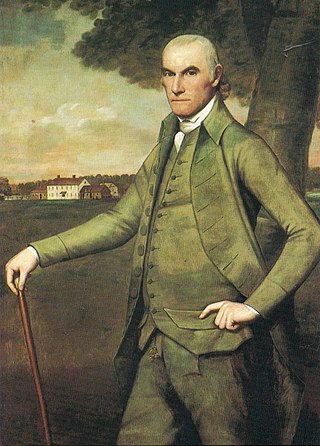
William Floyd was an American Founding Father, wealthy farmer, and political leader from New York. Floyd served as a delegate to the Continental Congress and was a signer of the Continental Association and Declaration of Independence. In August 1776, a few weeks after the Declaration was signed, the British Army overran Long Island, confiscated Floyd's house and estate, and used the property as a base for its cavalry over the next seven years. Floyd remained active in politics throughout the Revolutionary Era, served as a major general in the New York State militia, and was elected to the first U.S. Congress in 1789.
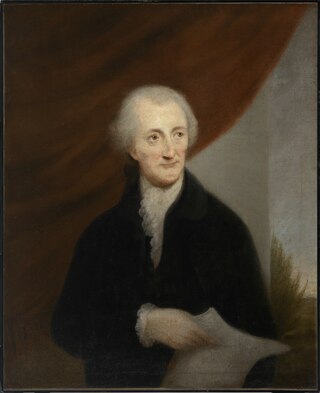
George Read was an American politician from New Castle in New Castle County, Delaware. He was a Continental Congressman from Delaware, a delegate to the U.S. Constitutional Convention of 1787, president of Delaware, and a member of the Federalist Party. In addition, Read served as U.S. Senator from Delaware and chief justice of Delaware.

Caesar Rodney was an American Founding Father, lawyer, and politician from St. Jones Neck in Dover Hundred, Kent County, Delaware. He was an officer of the Delaware militia during the French and Indian War and the American Revolutionary War, a Continental Congressman from Delaware, a signer of the Continental Association and Declaration of Independence, and president of Delaware during most of the American Revolution.

John Dickinson, a Founding Father of the United States, was an attorney and politician from Philadelphia, Pennsylvania, and Wilmington, Delaware. Dickinson was known as the "Penman of the Revolution" for his twelve Letters from a Farmer in Pennsylvania, published individually in 1767 and 1768, and he also wrote "The Liberty Song" in 1768.
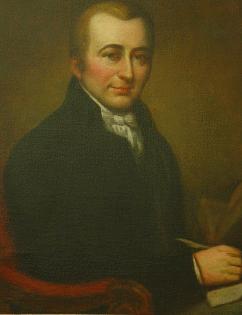
Caesar Augustus Rodney was an American lawyer and politician from Wilmington, in New Castle County, Delaware. He was a member of the Democratic-Republican Party, who served in the Delaware General Assembly, as well as a U.S. Representative from Delaware, U.S. Senator from Delaware, U.S. Attorney General, and U.S. Minister to Argentina.
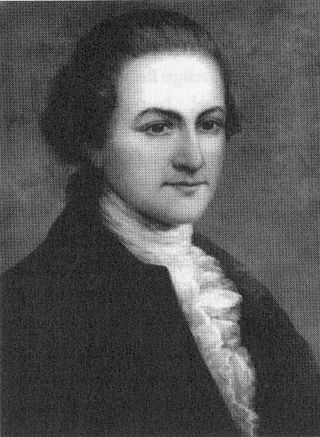
John Middleton Vining was an American lawyer and politician from Dover, in Kent County, Delaware. He was a Continental Congressman from Delaware, and a member of the Federalist Party, who served in the Delaware General Assembly and as United States Representative and United States Senator from Delaware.
Thomas Rodney was an American lawyer and politician from Jones Neck in St. Jones Hundred, Kent County, Delaware, and Natchez, Mississippi. He was a Continental Congressman from Delaware, and a member of the Democratic-Republican Party who served in the Delaware General Assembly, as Justice of the Delaware Supreme Court, and as federal judge for the Mississippi Territory. He was the younger brother of Caesar Rodney, Revolutionary President of Delaware.

Major John Patten was a United States farmer and politician from Dover, in Kent County, Delaware. He was an officer of the Continental Army in the American Revolution, a Continental Congressman, and a member of the Democratic-Republican Party, who served in the Delaware General Assembly and as a United States representative from Delaware.
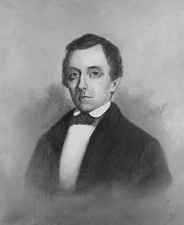
Daniel Rodney was an American merchant and politician from Lewes in Sussex County, Delaware. He was a member of the Federalist Party, and later the National Republican Party, who served as Governor of Delaware, U. S. Representative from Delaware and U.S. Senator from Delaware.

John Hunn was an American businessman and politician from Camden, Delaware. The first governor elected after a reform of Delaware's state constitution and a compromise candidate, Hunn served from 1901 until 1905 and became the first of a multi-decade string of elected Republican Delaware governors.

Caleb Prew Bennett was an American soldier and politician from Wilmington, in New Castle County, Delaware. He was a veteran of the American Revolutionary War and the War of 1812, and a member of the Democratic Party who served as Governor of Delaware.
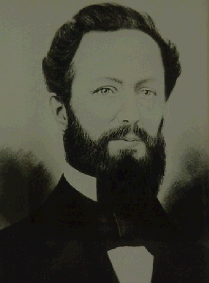
William Temple was an American merchant and politician from Smyrna, in Kent County, Delaware. He was a member of the Whig Party, and later the Democratic Party, who served in the Delaware General Assembly, as Governor of Delaware, and as U.S. Representative from Delaware. He is the youngest governor to serve in Delaware in all of its history.

Thomas Collins was an American planter and politician from Smyrna, in Kent County, Delaware. He was an officer of the Delaware militia during the American Revolution, and served in the Delaware General Assembly and as President of Delaware.
Caleb Rodney was an American merchant and politician from Lewes, in Sussex County, Delaware. He was a member of the Federalist Party, who served in the Delaware General Assembly and as Governor of Delaware.

John Hunn was an American farmer and abolitionist who was a "station master" of the Underground Railroad in Delaware, the southernmost stationmaster and responsible for slaves escaping up the Delmarva Peninsula.

The New Castle Court House Museum is the center of a circle with a 12-mile radius that defines most of the border between the states of Delaware and Pennsylvania and parts of the borders between Delaware and New Jersey and Maryland.

George Read Jr. was an American lawyer who served as the first U.S. Attorney for the District of Delaware. The son of one of the nation's founding fathers, Read made numerous attempts at higher political office but was ultimately unsuccessful each time. Despite this, his substantial wealth acquired through his family and law career allowed him to build one of the largest homes in Delaware, which is today maintained as a museum.

Wilmington and Brandywine Cemetery is a rural cemetery at 701 Delaware Avenue in Wilmington, Delaware. Founded in 1843, it contains over 21,000 burials on about 25 acres.


















